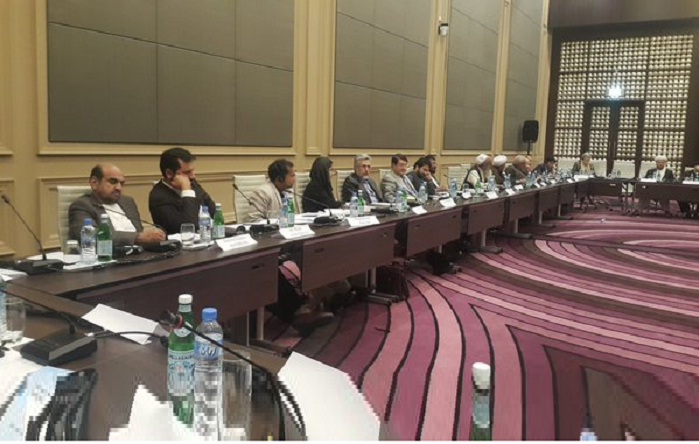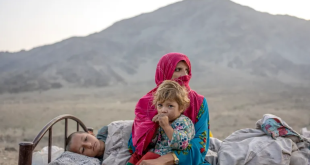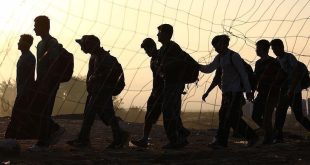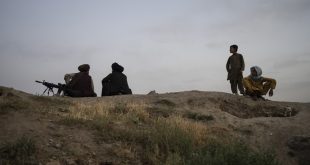KABUL: A two-day meeting on peace and stability in Afghanistan in Doha has called for an immediate end to military confrontation mustvia political cooperation within a legitimate framework.
Organized by the Canadian Nobel Peace Award-winning NGO Pugwash, the non-official event on January 23-24 was attended by approximately 55 participants, who discussed the shared goal of peace and reconciliation.
All participants expressed appreciation for the government of Qatar for allowing the meeting to take place and providing support in this regard. There was a consensus that these meetings should continue on a regular basis.
Discussions showed that there were many shared concerns, areas of commonality that can create opportunities for progress. Given below is an 18-point statement issued by the Pugwash secretary-general:
- Peace is an urgent need. Decades of war that have been imposed on Afghanistan, have had a devastating impact on all Afghans. People are waiting impatiently for peace. If progress is not made soon, many fear the country may face other threats that might further complicate the process.
- Military confrontation must end. The sovereignty of Afghanistan and the desired peace and stability will ultimately be achieved via political cooperation within a framework of legitimacy established by an appropriate constitution. Foreign troops must eventually leave Afghanistan.
- Some participants believe that the Constitution should be amended, while others believe that the constitution should be substantially rewritten. Concrete proposals should be discussed in detail in future meetings.
- Outside forces should not control the politics of Afghanistan. Instead, international technical, economic and cultural cooperation should be promoted.
- The freedom for all parties to discuss the path to peace needs to be ensured from now on. The highest priority in this regard is enabling all sides to sit together. Blacklists should be eliminated and freedom of movement should be guaranteed. Visas should be facilitated for those to attend such discussions. All agreed that the Taliban should have an office and an address.
- To foster dialogue among all parties, some participants invoked Afghanistan’s long-established tradition of the Jirga. A peace Jirga of credible, impartial Afghans could be convened, perhaps drawn from participants at this conference. Other institutions, such as Pugwash, could also provide a forum, but Afghans must lead. It was pointed out that the Doha dialogue and its follow-ups do not interfere with the current quadrilateral talks.
- A ceasefire should be part of negotiations.
- The protection of civilians and an end to civilian casualties are shared goals and high priorities. The recent increase in civilian casualty rates, including the heavy toll on children and women, was noted. All sides should ensure accountability and the prosecution of abuses.
- Constitutional issues are of primary concern and need to be discussed in specific detail. Afghanistan should have an Islamic government. According to some participants, the present constitution needs to be changed, provided that it be based on Islam and enforce national sovereignty. A fundamental concern is that any constitution should ensure there will be no monopoly of power and no discrimination against people with different religions and backgrounds.
- It was noted that peace can create a better environment for economic development, which will benefit all the people of Afghanistan. The role of civil society, freedom of expression, and education according to Islamic principles in achieving these goals was agreed.
- The activities that are performed under the name of Daesh in Afghanistan are a foreign phenomenon and are rejected by the Afghan people.
- All emphasize the need to uphold the rights of women, and to end violence against women. Some believe these points need to be very clearly defined, and in particular to provide guarantees regarding women’s rights. There should be increased accountability for human rights abuses.
- Health and education issues are a priority independent of the various political positions.
- Protection of public properties such as schools, medical facilities, and the country’s infrastructure is essential. People who commit crimes against them should be prosecuted.
- There is the need to address the devastation to society from past decades. Drugs, high unemployment and corruption have all taken a high toll on Afghan society. Gains that have been made in terms of increased life expectancy, increased access to health and education, and improvements to the economic structures should be maintained.
- Threats to society from remnants of war, including unexploded ordnance, must be addressed.
- All sides share the desire for future engagement with the outside world, and welcome friendship and cooperation with the international community based on mutual respect. Support from the international community in helping to build up Afghanistan, including its roads and schools, will be welcomed by all sides.
- Participants expressed the strong desire of continuing the series of meetings like the two recent Pugwash meetings in Doha.
But the Afghan government said it “does not recognise the Islmaic Emirates of Taliban” and the legitimate and democratically-elected government of Afghanistan “is the Islamic Republic serving the people under the constitution”.
Syed Zafar Hashemi, deputy spokesman for President Ashraf Ghani, told Pajhwok Afghan News the government was open to talks with Taliban groups and ready to discuss their issues, but preconditions from the insurgents were unacceptable.
He said the international troop presence in Afghanistan was based on an agreement with the Afghans through the consultative Loya Jirga, whose decision had been approved by the UN Security Council.
He said the status of international forces in Afghanistan was legal under the Bilateral Security Agreement (BSA) with the US and SOFA with NATO. Should the war end and terrorist activities and violence against Afghan civilians come to an end, there would be no need for foreign troops to stay in Afghanistan, he argued. (PAN)
 Afghanistan Times
Afghanistan Times




